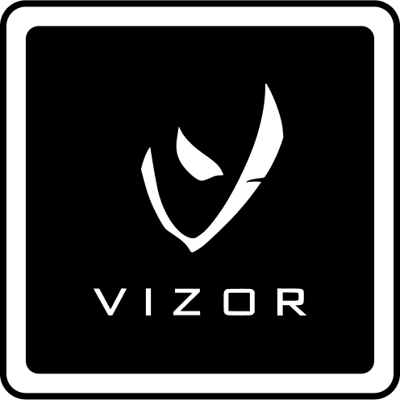Success story
How Vizor leverages AI-assisted translation and cuts game-update localization costs by 35%+ monthly with Alconost MTPE services
Key takeaways in 100 words ↓
10 years
For ten years, Alconost only used professional translators who were native speakers to localize Vizor projects.
Challenge
In 2023, the Vizor team wondered if their game updates could be translated more cheaply using AI. Alconost embraced the challenge.
6 months | 4 games | 9 pairs
For six months, an MTPE workflow replaced native-speaker localization for a set of nine language pairs and four out of six games.
35-50%
For each language where machine-translation post editing (MTPE) replaced localization from scratch by native speakers, Vizor now saves 35-50% of its previous game update localization budget, depending on the language pair.
️Despite changes to the workflow, translation quality has remained reliably high. Regular outside assessments and linguistic quality assurance (LQA) procedures ensure this is the case.
"Our games live long lives and get updated regularly. Different games have updates that are similar in terms of internal logic. We wondered if we could make the translation of those updates less expensive, considering that their content was predictable." — Yulia

Yulia Karostik, Head of Support & Localization at Vizor
Yulia manages partner relationships, including with vendors. Apart from seeking opportunities for budget optimization, she keeps an eye on the development of cutting-edge technologies and drives their implementation in Vizor’s processes.
35-50% cost savings with MTPE on specific language pairs in Vizor projects

Monthly saving on ZH-CN, ZH-TW, KO with MTPE, compared to professional human translation from scratch

Monthly saving on EN-NL with MTPE, compared to professional human localization
"Localization cost varies for different languages. For example, the EN-NL language pair is traditionally not the cheapest. Cost savings from switching to MTPE are very easy to see there." — Yulia
About Vizor

Founded in 2007, Vizor started off making simulation games for social networks, combining the expedition genre with farming mechanics.
Now Vizor is both a game developer and publisher of social and mobile games. Total DAU of their games exceeds 2 mln players. Their flagship game Klondike Adventures is responsible for half of this amount of daily active users.
Some games Vizor launched over 10 years ago are still being supported and regularly updated. Quite a term for the fast-changing gamedev world!
Alconost is Vizor's localization partner for six games. For four of those games, Vizor made the switch to MTPE, leaving out its flagship game and newest release.
Out of the 10+ languages Alconost supports for Vizor games, 100% native-speaker localization is still in place for three: French, German, and Japanese.
Client’s goals & requirements
The client's goal for the MTPE transition was to reduce monthly translation costs by 30% over localization solely by professional linguists.
"We could have met that goal by choosing some other localization company where non-native-speakers do the translations. But that option seemed much less than ideal, because so many years of native-speaker localization has set a high bar. Then, in 2023, AI was all anyone could talk about. We did some in-house experimentation with AI translations, saw the potential, and decided to talk with Alconost about how to put AI to work in our projects." — Yulia
Vitalia, Vizor’s localization project manager, talked to us about the specific requirements Vizor put in place for MTPE implementation.
- maintain quality:
"There is a lot of dialogue in our games, and we wanted it to read as well as it ever had. We knew that with MTPE, we wouldn't be able to get exactly identical quality, and something would have to be sacrificed. But we wanted that sacrifice to be limited, predictable and controllable."
- consider context:
"We write detailed comments about who is speaking each line to whom, and identifying all the allusions in the dialogue. The translators always take that into consideration, and we wanted the machine translation engine to factor in those nuances, too, to simplify further editing."

Vitalia Fokina, Localization Project Manager at Vizor
Vitalia is responsible for localization process management on the Vizor side, maintaining localization operations, and quality control.
She coordinates the work of Vizor’s in-house linguists, selects new instruments to enhance Vizor’s localization toolkit, and communicates with the Alconost team on a daily basis, answering questions from the editors and carefully curating every string.
Solution: Quality-Centric Cooperative Work
This is the approach we developed to meet the requirements.
Double-testing translation engines

The teams at Alconost and Vizor performed independent checks into the quality different engines produced when translating various languages. The transition to MTPE began only after both sides agreed on positive assessments.
"The engines aren't consistent, and their output can vary. The bilateral assessment gave us the most reliable result, and our efforts had a cumulative effect." — Dima Winicki, Alconost Localization Project Manager
Assessing engines in terms of respecting context

Alconost collected linguist feedback for each engine to establish a baseline quality level for each, and to see how appropriately the different engines were interpreting contextual hints. We also learned how to improve our prompts at this stage.
In the run-up to implementing MTPE for Vizor projects, Alconost took on the expense of quality assessment for the different machine translation engines.
"We thought it was an intriguing experiment. We can scale the results to other projects in the gamedev sector.
And we have a decade of history with Vizor, full of fruitful, enjoyable work. We wanted to make sure the client continued receiving high-quality translations, even after this fundamental change to the workflow." — Dima
MTPE Setup & Development: Facts & Figures
9 engines
DeepL • Microsoft • Amazon • Alibaba • Tencent • ChatGPTv1 • AutoML • ModernMT • ChatGPTv4
Translations from nine engines were assessed and compared at the initial engine evaluation stage.
![]()
This engine was used initially because it received the best feedback from native-speaking translators. However, later it was kept for the Korean language only.
![]()
After experimenting with prompts and leveraging ChatGPT’s newest version, DeepL was replaced by ChatGPT for all languages except Korean.
“Based on feedback from linguists, DeepL shows better results for this type of content in the English-Korean direction. That is why only Korean is still supported by DeepL now.” — Dima
Seamless mix
We transferred a pre-translation process with both DeepL and ChatGPT into Crowdin. Yes, this is it: pre-translation from two different engines is now embedded into a canonical localization environment where post-editing takes place.
Preliminary evaluation of engines: screenshots from behind the scenes
.png?width=1200&length=1200&name=Initial_Engine_Assesment_01_ES%20(1).png)
.png?width=1200&length=1200&name=Initial_Engine_Assesment_02_NL%20(2).png)
.png?width=1200&length=1200&name=Initial_Engine_Assesment_03_PT%20(2).png)
These translations were used by in-country linguists for engine assessment purposes.
More frequent quality control at the start of MTPE implementation

For completely native localization, scheduled assessments are performed once per quarter. With MTPE projects, quality is assessed more often, once per month on average. These checks don't cost the client extra, despite their frequency and the involvement of native speakers.
"At the beginning, it was vital for us to be sure the MTPE workflow was set up correctly for each language pair. Once several consecutive checks show a stable level of quality, we can get back to a more standard schedule." — Dima
MTPE quality assessment details
Tailored survey development
Using custom survey forms, Alconost regularly asks translators to share detailed feedback on the engine’s performance. It’s vital to determine whether the engine works consistently with a specific language pair.
TQI plan for monitoring quality
The TQI (Translation Quality Index) must be at least 98%. While some compromises and exceptions are allowed in the MTPE process, maintaining top-notch quality is a priority at Alconost.


Prioritizing editing efforts

The Vizor team produced style guides for editors indicating which aspects of the machine translations were priorities for correction, and which could receive less attention.
"That way, editors can be more efficient with their time and effort." — Vitalia
Extra mile: same translators invited as editors

Alconost wanted to keep the same linguists on each project, but as editors, rather than translators. To that end, Alconost offered its translators individual sets of new terms.
And although post-editing is challenging — for some linguists, there are ethical issues, and for others, there are financial considerations — the basic pool of contributors to Vizor projects didn't change with the switch to MTPE.
These are basically dedicated linguists who feel attached to the gamedev world and have worked on these projects for years.
"One advantage of outsourcing localization services is that the localization company takes care of all the negotiations with the actual providers. In our case, both payment rates and the moral dilemma had to be negotiated. And we're more than happy with the result: it's mostly the same linguists who stayed on our projects, ones who instantly grasp the nature of each update and can maintain the translation style." — Yulia
First Project for MTPE Implementation: Timeline & Development
Vizor selected its Mahjong Treasure Quest, a mobile game with over 10 million installs, for its MTPE pilot project. Alconost had previously localized the game itself and its updates into 11 languages in an all-native-speaker workflow.
The stepwise introduction of MTPE for eight languages went so smoothly that Vizor decided to try MTPE even for French, one of its most valuable locales.
German and Japanese are still being handled solely by native speakers.
"AI can't yet cope with Japanese very well. With German, the value of the locale is a factor. And linguists are very much involved in the project for both those languages. Their comments are helping us with other locales, too." — Yulia

Yulia Karostik
Head of Support & Localization at Vizor
"We receive vital input from our dedicated linguists. They might point out some vagueness in the original phrasing. Or help us localize humor appropriately. We want to safeguard our relationship with people like that." — Vitalia

Vitalia Fokina
Localization Project Manager at Vizor
Localized Content: Screenshots





Outcomes: Cost Reduced, Quality Preserved, Opportunities Unlocked
By implementing MTPE for four projects, including eight different language pairs, Vizor was able to:
Achieve the desired cost savings

In some language pairs, the savings exceeded the target goal of 30% to reach 35% or even 50%. That permits Vizor to keep native-speaker localization in place for selected projects and locales while meeting the overall goal.
"We considered jumping into our MTPE experiment with a new partner, but Alconost won out in a fair fight. They were able to offer us market rates and terms, even while maintaining all the extras and added value we always enjoyed from Alconost for our older projects requiring native-speaker localization from scratch." — Yulia
Keep quality at the high level set by native-speaker localization

This goes beyond minimizing complaints from players.
"We have external assessments performed, including by the App Store and Google Play, and they give us high marks for localization quality. We also order occasional LQA from other agencies, and they rate Alconost's work very highly. Basically, in all the years Vizor and Alconost have been working together, we've never had quality problems. I feel confident they'll never let us down." — Vitalia
Put AI's translation potential to better use when testing important business development scenarios

In some language pairs, the savings exceeded the target goal of 30% to reach 35% or even 50%. That permits Vizor to keep native-speaker localization in place for selected projects and locales while meeting the overall goal.
"The more engines we tested, the better we understood what to expect from them in terms of quality. That helped us provide our marketing folks with a few scenarios of different approaches to translation. Different combinations of MT, MTPE and human translation makes it possible for us to add new language to the game quickly and inexpensively, which is incredibly important at the earliest stage, when marketing is less sure how much potential a certain locale might have." — Yulia
MTPE for the game launch stage? Good question!
Vizor only uses MTPE for translating updates: dialogues, descriptions, and tasks. When a game goes out for initial testing, and during the first months of a global release, Vizor makes a point of only using localization done completely by native speakers. Yulia explains why.
Safe start
At the testing stage, when the potential for releasing the game globally is being assessed, a small amount of paid traffic is brought into the game. Many factors influence the testing results, and there's no point taking the risk that flaws in the localization will distort the metrics even more. Also, there's not enough text in the game, at this stage, for savings on localization to really be noticeable, especially compared to overall development costs.
Reliable foundation
When the decision is made to go ahead with the release, a huge influx of content will need translation, and later, that will become the foundation for a translation memory and glossary. If that basic content gets translated inconsistently, the project will basically be maimed from birth. There will be negative ripple effects on translation quality in subsequent updates.
Formal requirements & creative spirit
At the start of the project, the entire UI will need to be localized, in a way that fits within strict character limits. Presently, that's a weakness of machine translation. Characters' names and unique words or neologisms will also need some creative adaptation. Native-speaking linguists are still the top performers for those aspects of the job.
"I agree that MTPE is not a silver bullet. A legacy of native-speaker localization is the perfect foundation for MTPE.
But I don't think it's always a terrible idea to try out MTPE without that background of native localization. Especially if your budget is extremely limited. The details are important here: particular aspects of the content, what the engines can do, your own individual requirements or quality expectations...
It's possible that with the right combination of factors, the result would be acceptable, but I wouldn't guarantee it. Every specific project needs to be assessed individually."

Dima Winicki,
Alconost Localization Project Manager
Seven insights for game developers considering MTPE: Vizor's expertise
If you're a game developer, this section is for you. Vizor has over 15 years of experience developing and publishing games. These insights from Vizor's localization team will save your team serious time and money.
The deceptive charm of poetry
Players don't love poetry as much as you might think! We've never seen a case where we've done an update in verse and users write to say "Thank God there's poetry!" Creating beautiful lines of verse for a game is fun, sure, but from what we've observed, it's not very rational. Save time and money on translations: use ordinary, creative prose rather than rhyming lines.
Mind the scope
It's a simple fact, but true: the less text your game has, the lower the translation cost. Especially when you need 12 languages! Any 100 words coming in can turn into 1200 words, in 12 languages, going out. And all of that costs money. Even if you're using MTPE, the cost is there. The less wordy the original, the less you'll spend longterm on translation.
MTPE means managers’ workload increases
When you implement MTPE, you reduce translators' participation in the project, but the volume of work grows significantly for the project manager. To obtain a machine translation with acceptable quality, you need to give the machine the right assignment, provide context, monitor its interpretations for accuracy, and collect the raw translations to hand over to native-speaking editors. Never underestimate the volume of work. The machine can make mistakes, and its results aren't always consistent. Creating raw translations isn't as easy as pushing a button. The job takes time, attention, and care.
Don't forget what your business actually is
Many studios can’t resist the temptation to handle localization in-house for the sake of cutting costs. It's especially alluring now, when AI tools can do some of the work. But as trite as this may sound, game development and localization are different businesses, and a gamedev company that focuses on game development will do better in the long run.
Avoid going to extremes
Track your reduced localization costs according to the final totals, not for individual languages. If you achieve the savings you need overall by switching to MTPE for particular languages and particular projects, you should feel good about sticking with native-speaker localization for the locales that are the most important to you. If your goal is to reduce costs, you should pursue that goal, and not leap to replacing all native-speaker localization with MTPE.
Keep it simple
Game developers love cultural references to music or other works of art. Localizing allusions like that is no easy task. Translators can do it, but when players miss the references, it makes us sad, because so much work went into localizing them. Try to use only truly classic Easter eggs that are relevant and understandable to your target audience in every country. Then all the work that goes into localizing them will feel justified.
From a lone wolf to a team player
Researching translation engines demands time and effort, and they evolve quickly. Your initial findings can become outdated as time goes by. When you look into an engine's potential on your own, you don't have anyone with whom you can compare experiences and observations. A localization partner who can do the research along with you will expand your capabilities and lend you support. You'll gain confidence, identify new areas where AI can be applied, and feel more willing to experiment.
Our Clients
More than 2000 companies have trusted us with their projects since 2004. Those companies have awesome projects. Yours is awesome too. We'd love to work with you.
Have a project in mind?
We’d like to learn more about it. In return, we’ll get back to you with a solution and a quote.